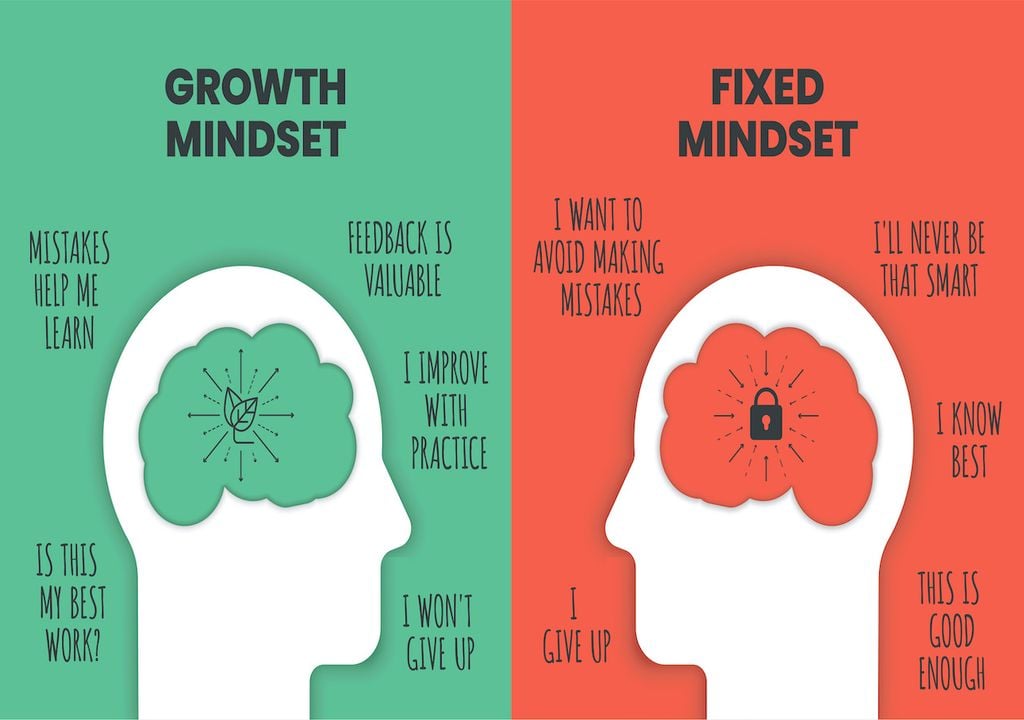A growth mindset can now be simply measured, but how?
There has been an improvement on how to measure a growth mindset in a quantifiable way thanks to research from the Norwegian Institute of Science and Technology.

The growth mindset was coined by American psychologist Professor Carol Dweck who studied how belief's about one's abilities affected their learning outcomes. Dweck defined it as being "based on the belief that your basic qualities are things you can cultivate through your efforts. Although people may differ in every which way—in their initial talents and aptitudes, interests, or temperaments—everyone can change and grow through application and experience."
By contrast, a person with a fixed mindset thinks their intelligence and abilities are fixed traits that cannot be improved. Achieving goals requires not only practical actions but particular mindsets. In addition to support from others, there must be passion and belief in possibilities to succeed, a group of researcher suggest, though many entrepreneurs would agree.
Research from the Norwegian University of Science and Technology study a particular kind of mindset that makes one willing to change and improve, called the growth mindset.
“An individual’s belief in growth is important. Individuals can change and increase their development through training. People with growth mindsets see challenges as opportunities for learning,” said Professor Hermundur Sigmundsson at the Department of Psychology at the Norwegian University of Science and Technology (NTNU).
This can not only be useful in work life, but hobbies, sports, and home life. It may help with flexibility to adapt to many kinds of challenges that life can present.
A simple measure of a growth mindset
To some it might sound like a loose, "airy" concept, but the researchers have now proposed a way to quantify the Growth Mindset in a way that is “simple to administer”. This could be used as a measure to check if we have the right mindset at a given time.
Sigmundsson and researchers have been considering factors that help in success and achieving goals. Much of Sugmundsson’s relevant research has been published in book published by Springer in 2024 called ‘How we learn and become experts: Igniting the spark’. He worked with Professor Monika Haga at the Department of Teacher Education to develop the measurement metrics for the growth mindset.
“There has been a lot of discussion in academic circles about the most common test available today. We believe our new test is better at measuring growth mindset,” said Sigmundsson.
How the growth mindset test goes
The 723 participants spanning ages 16 to 85 years old had to consider if they agreed with certain statements, which helped define how much they had a growth mindset. They were asked the following:
- I know that with effort I can improve my skills and knowledge.
- I can influence and change my development in general.
- I can change my skills and knowledge through practice.
- I like to take challenges and try new things.
- I see learning as my goal.
- Effort makes me stronger.
- I want to spend more time and work more on an area/theme/skill to develop my skills and knowledge.
- I have faith in my own skills and my possibilities.
As a result, “a total of 723 participants aged 16 to 85 years old were involved in the study. This provided a representative sample of people, and there were enough of them for us to also investigate how feasible, consistent and effective our test is,” said Sigmundsson.
The tests appeared effective and appears to be an improved scale for measuring a growth mindset.








